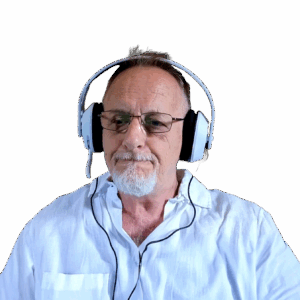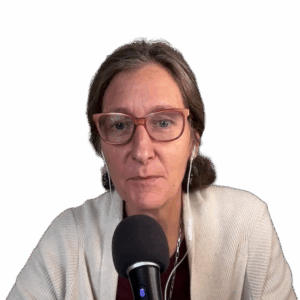
Ep 10 | Nora Bateson
Nora Bateson: “Complexity Between the Lines”
On this episode, we meet with award-winning filmmaker, writer, educator, and President of the International Bateson Institute, Nora Bateson.
Nora brings us beyond the descriptions of the physical science that underpins our predicament to the nuance and perception of the complexity that we live within. How can we improve our relationships with others, as well as the broader world?
Nora helps us understand how systems dynamics inform our predicament. How does an ecosystem develop and mature through mutual learning? What are ways we can apply this thinking to our profit-focused superstructure?
About Nora Bateson
Nora Bateson is an award-winning filmmaker, writer and educator, as well as President of the International Bateson Institute, based in Sweden. Her work asks the question “How can we improve our perception of the complexity we live within, so we may improve our interaction with the world?”
An international lecturer, researcher and writer, Nora wrote, directed and produced the award-winning documentary, An Ecology of Mind, a portrait of her father, Gregory Bateson. Her work brings the fields of biology, cognition, art, anthropology, psychology, and information technology together into a study of the patterns in ecology of living systems. Her book, Small Arcs of Larger Circles, released by Triarchy Press, UK, 2016 is a revolutionary personal approach to the study of systems and complexity.
In French, we have a motto that says that a simple drawing is often better than a long explanation. Jean-Marc Jancovici Carbone 4 President
That’s very understandable because with left atmosphere thinking, one of the problems is that you see everything as a series of problems that must have solutions. Iain McGilchrist Neuroscientist and Philosopher
We can’t have hundreds and hundreds of real relationships that are healthy because that requires time and effort and full attention and awareness of being in real relationship and conversation with the other human. Nate Hagens Director of ISEOF
This is the crux of the whole problem. Individual parts of nature are more valuable than the biocomplexity of nature. Thomas Crowther Founder Restor
Show Notes & Links to Learn More
Download transcript00:39 – Nora Bateson info
01:40 – Systems lens
09:27 – 300,000 years as a species
10:23 – Uncertainty is uncomfortable
14:46 – Single moms and homelessness in Seattle
18:40 – William Bateson
18:50 – Gregory Bateson
21:55 – Superorganism paper
22:53 – Energy is the currency of life
23:05 – We are evolved to match emotional states of our ancestors
24:50 – Warm data
36:16 – Nora and Nate on Emergence
38:49 – Pre-emergence paper
41:25 – Energy surplus
42:05 – The Great Simplification videos
42:31 – The Bateson Institute
44:05 – Economic tools of maintaining the system
47:54 – Symmathesy
48:40 – The 4th law of thermodynamics
49:35 – Kleiber’s law
53:30 – Schismogenesis
1:01:34 – The ecology of conversation
1:11:50 – People Need People






